Staying engaged through dialogue
Updated: 2016-06-11 02:10
By Chen Weihua in Washington(China Daily USA)
|
||||||||
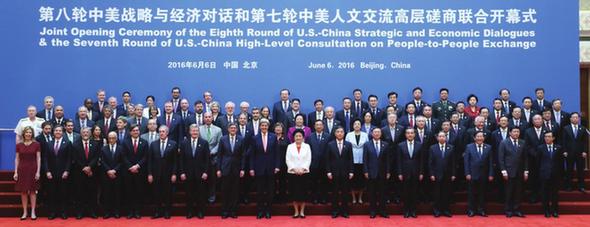 |
|
The joint opening ceremony on Monday of the eighth round of US-China Strategic and Economic Dialogue and the seventh round of China-US High-Level Consultation on People-to-People Exchange in Beijing. Zhang Duo / Xinhua |
Nearly 40 hours after the end of the eighth round of China-US Strategic and Economic Dialogue in Beijing on Monday and Tuesday, the US State
Department was still sending to the press outcome documents from the annual large-scale, high-level engagement between the two countries.
One note was about a breakout session in which both sides expressed their intentions to continue the fight against wildlife trafficking. It reiterated the agreement by presidents Xi Jinping and Barack Obama last September on enacting "nearly complete bans on ivory import and export." China and the US are two largest markets for ivory.
Another statement described a session on civil aviation attended by multiple government agencies from both countries.
In China, the top headline on the Xinhua News Agency website on Thursday was still a statement by President Xi that the two sides should do more things conducive to bilateral cooperation. He made the remarks while meeting US Secretary of State John Kerry and Secretary of Treasury Jack Lew on Tuesday.
On China Central Television (CCTV) website, the long outcome documents from the S&ED were still among the top news on Thursday.
At the same time, spokesmen from China's Ministry of National Defense and Ministry of Foreign Affairs were rebutting a statement by the US Pacific Command that a Chinese fighter jet carried out an "unsafe" intercept on Tuesday of a US spy plane in international airspace over the East China Sea. China has long urged the US to halt its close-in surveillance flights along the Chinese shore.
The foreign ministry issued a statement on Wednesday calling on the Philippine government to cease its arbitration case regarding the South China Sea at The Hague and instead resort to bilateral negotiation with China. The new Philippine President Rodrigo Duterte, who will take office on June 30, is less confrontational on the issue, an issue which many Chinese believe to be stirred up by some in the US.
It looks like a perfect reflection of the China-US relationship that many on both sides have described as complex and cooperative and competitive at the same time.
The outcome documents from the S&ED this week included a long list of areas for cooperation. But there was no major breakthrough on the issue of the South China Sea. Both agreed to keep communicating with each other and manage their differences in a constructive manner.
Key mechanism
"We need to recognize that there's going to be some tensions in the US-China relationship, and that's natural, and it's healthy," said Kurt Campbell, chairman of The Asia Group and former US assistant-secretary of state for East Asian and Pacific affairs.
"It's better to acknowledge these areas, not to sweep them under the rug. Right now, the most important thing is high-level strategic engagement between the leadership of both countries and very clear statements of purpose and determination," he said on Wednesday in a talk about his new book The Pivot: The Future of American Statecraft in Asia.
Stapleton Roy, a distinguished scholar at the Kissinger Institute on China and the United States at the Wilson Center, agreed. He said that big countries like China and the US should be able to have big disagreements and still recognize the importance of having big dialogues between them.
"That's important. Our smart leaders all recognize that," said Roy, the US ambassador to China from 1991 to 1995.
Roy called himself a big supporter of the S&ED. "The important thing is that we now have a forum within which we can cover the whole range of issues that are in the bilateral relationship at a senior level. We have not always had this in the past," he said.
The S&ED was a mechanism announced in April 2009 by Obama and then Chinese President Hu Jintao to replace the former Senior Dialogue and Strategic Economic Dialogue launched by the George W. Bush administration. The annual S&ED, rotating between the two countries' capitals, has a strategic track and economic track and is held simultaneously with the annual China-US High-Level Consultation on People-to-People Exchange (CPE).
This year's meeting, the last under the Obama administration, drew a 400-plus delegation from more than 20 US government agencies and organizations.
In their closing remarks on Tuesday, Kerry and Lew as Obama representatives to the S&ED and their Chinese counterparts, Vice-Premier Wang Yang and State Councilor Yang Jiechi as Xi's representatives, all spoke highly of the S&ED, its candid style in conversation and its positive impact on the bilateral relationship.
"The past two days have been marked by a constructive and candid discussion reflecting all the full range of issues that we face in our bilateral relationship," Lew said. Kerry echoed Lew by calling the meeting "a very professional, very serious conversation."
"We haven't hesitated to talk about tough issues, didn't agree on everything, but the importance is that we're willing to have those conversations, and frankly, find ways to try to bring ourselves together and resolve differences," Kerry said.
Wang, the vice-premier, also applauded the meeting as successful. But he noted: "As what was anticipated, although we have not and we're unlikely to iron out all differences, we did reach over 60 outcomes."
Outcomes
He was referring to the joint fact sheet on the economic track, in which the two countries vowed to strengthen economic policy cooperation, promote open trade and investment, foster financial stability and reform, and enhance global cooperation and economic governance.
The outcome document of the strategic track is even longer, including 120 items covering almost all possible bilateral, regional and global issues, ranging from military-to-military exchanges, cybersecurity, the Korean peninsula and climate change to science and technology, oceans and public health.
At the seventh CPE headed by Vice-Premier Liu Yandong and Kerry, the two sides signed 12 agreements on people-to-people exchanges.
"This was a difficult year to get big outcomes, but still there were some good outcomes," said David Dollar, a senior fellow at the John L. Thornton China Center of the Brookings Institution.
He said that the expanded quotas for US investors to bring offshore yuan into China for investment are positive, as was the decision to move ahead with yuan-clearing in the US.
"China's commitment to bring a revised negative-list proposal on a Bilateral Investment Treaty next week is positive, and it will be interesting to see if it is a good offer that can jump-start those talks," said Dollar, a US Treasury Department economic and financial emissary to China from 2009 to 2013.
But many also expect that the Obama administration's biggest fight in the remaining months is to try to push the Congress during the lame-duck session to ratify the Trans-Pacific Partnership (TPP), rather than a BIT with China, given the strong anti-trade and anti-China rhetoric both on Capitol Hill and on the 2016 presidential campaign trail.
While the list for cooperation is long, the Chinese side was unhappy about the US refusal to recognize China's market economy status, something China believes it should be granted automatically this year, 15 years after its accession to the World Trade Organization (WTO). More than 80 countries including Russia, Brazil, Switzerland, Australia and New Zealand have recognized China's market economy status.
The US refusal has allowed it to continue to impose rampant anti-dumping duties on Chinese exports, such as punitive tariffs on Chinese steel, actions China protested as "irrational" and "protectionist."
China also dismissed US accusation of its law regarding the foreign NGO administration, with State Councilor Yang calling it a "specific step taken by China in its process of advancing the rule of law" and "providing\ better protection for their lawful rights and interests."
Going forward
"In my memory, there has been greater emphasis in the past on what brings us together. And this particular session seems to have a much heavier balance of things that divide us, or about which there is a friction," said Michael Lampton, professor and director of China studies at the Johns Hopkins School of Advanced International Studies.
"I think there is a desperate need in US-China relations for us to once again find areas of cooperation that can insulate the relationship from some of the frictions," he said.
Ralph Winnie Jr, director of the China program at The Eurasia Center, believes the S&ED will continue under the next US administration. "I think it will continue. It will be different dynamics depending on who is the president…. It is important to keep engaged. The worst thing is to break up negotiations," he said.
Robert Daly, director of the Kissinger Institute on China and the United States, believes the meeting needs to be maintained but reconceived going forward, with less emphasis on deliverables. "It should be about the bureaucracies working with each other," he said.
While the S&ED has produced many deliverables in the past, it is also regarded as an important part of a cycle in which incremental progress in the bilateral relationship is made. There are some 90 mechanisms between the two governments.
Xi is expected to meet Obama on the sidelines of the G20 summit to be held in September in East China's city of Hangzhou. Xi told Kerry and Lew that he and Obama will have another chance for in-depth talks, and he hopes the teams on both sides will make good preparations for the talks and the G20 summit.
"I hope we'll always bear in mind the bigger picture and also make concrete efforts to promote the growth of this relationship so that it will always stay on the right track," he said.
Contact the writer at chenweihua@chinadailyusa.com
- Suspected IS terrorists arrested in Germany
- Japanese boy abandoned by parents in Hokkaido forest found alive
- China to build Africa's biggest university library
- 'Kill list' found in UCLA campus shooter's residence: Police
- Swiss declare Alps tamed as Gotthard rail tunnel opens
- China urges Japan to properly settle Chinese forced laborers issue
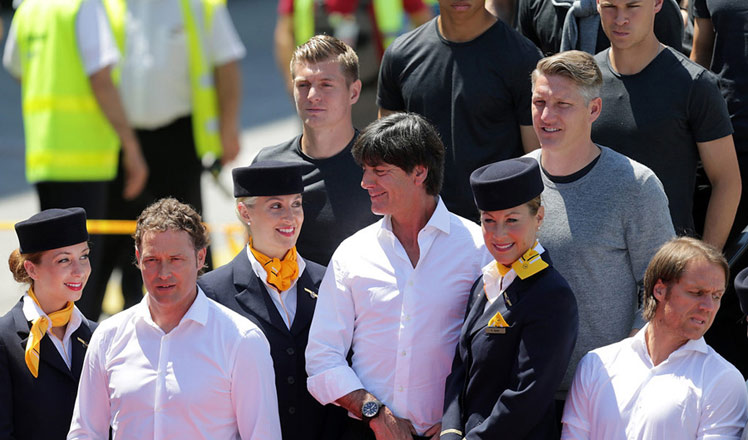
 Euro powers land in France for UEFA EURO 2016
Euro powers land in France for UEFA EURO 2016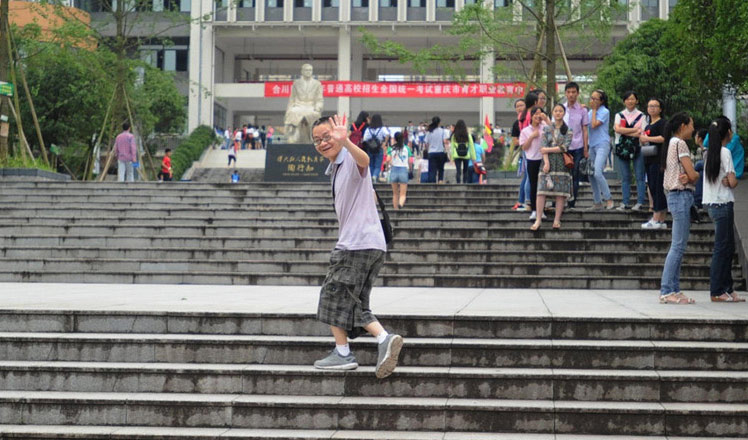
 The most unusualgaokao candidates in 2016
The most unusualgaokao candidates in 2016
 Elderly man carries on 1000-year old dragon boat craft
Elderly man carries on 1000-year old dragon boat craft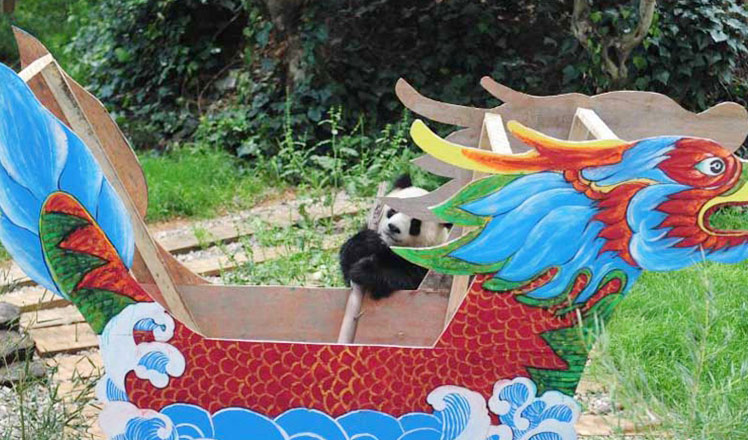
 Row your dragon boat, cute pandas in Yunnan!
Row your dragon boat, cute pandas in Yunnan!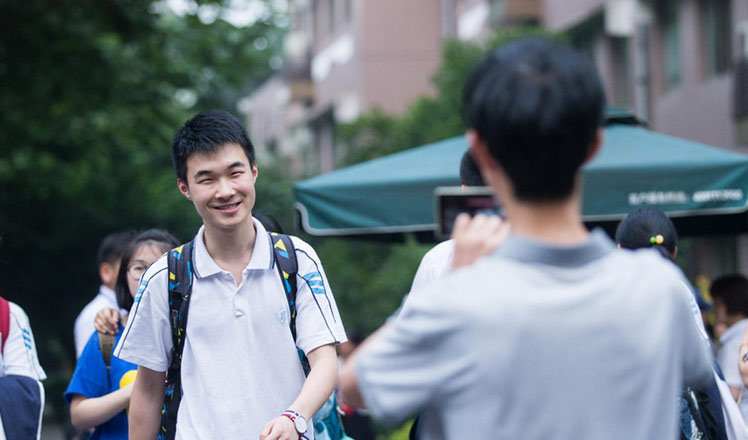
 In pics: China's college entrance exam starts
In pics: China's college entrance exam starts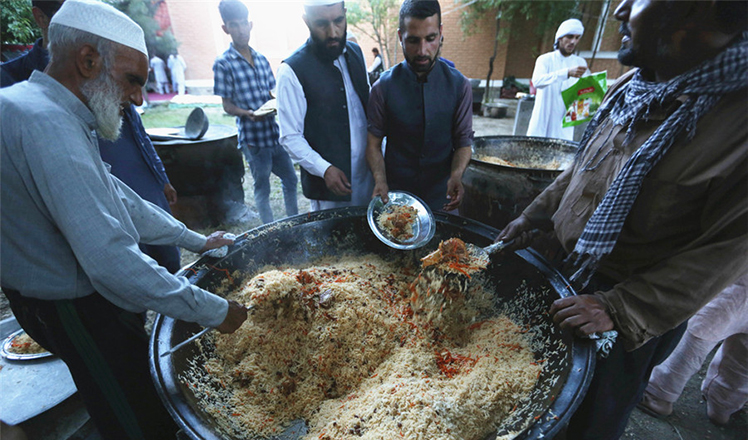
 Popular foods to break fast during holy month of Ramadan
Popular foods to break fast during holy month of Ramadan
 Top 10 biggest brands in Asia listed in media report
Top 10 biggest brands in Asia listed in media report
 Things you need to know about China's gaokao
Things you need to know about China's gaokao
Most Viewed
Editor's Picks

|

|

|

|

|

|
Today's Top News
Abe's blame game reveals his policies failing to get results
Ending wildlife trafficking must be policy priority in Asia
Effects of supply-side reform take time to be seen
Chinese State Councilor Yang Jiechi to meet Kerry
Chinese stocks surge on back of MSCI rumors
Liang avoids jail in shooting death
China's finance minister addresses ratings downgrade
Duke alumni visit Chinese Embassy
US Weekly

|

|









